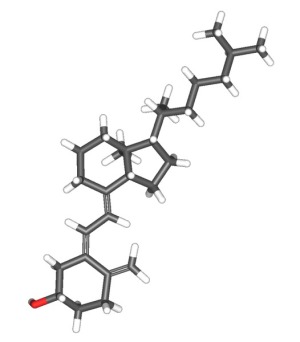por
Joanna Padovano, Reporter | October 03, 2011

Cholecalciferol, a form of vitamin D
Over 75 percent of cancer patients suffer from reduced levels of vitamin D, and the lowest amounts are common in the advanced stages of cancer, according to a study presented Sunday at the 53rd Annual Meeting of American Society for Radiation Oncology in Miami.
Vitamin D, which promotes bone health and metabolism, is acquired through food, supplementation and the sun.
"At first studies looked at the risk of cancer based on vitamin D deficiencies," Thomas Churilla, a student at the Commonwealth Medical College, and lead author of the study, told reporters in a press conference Monday. "More recently studies have been looking at what vitamin D means to different types of diseases."




Ad Statistics
Times Displayed: 19948
Times Visited: 374 Stay up to date with the latest training to fix, troubleshoot, and maintain your critical care devices. GE HealthCare offers multiple training formats to empower teams and expand knowledge, saving you time and money
The study included 160 newly diagnosed cancer patients at the Northeast Radiation Oncology Center in Dunmore, Pa. The average age was 64 and there was an even male to female ratio. The majority of the patients were suffering from breast, prostate, lung, thyroid and colorectal cancer. Demographic and medical data from 2008 to 2010 were collected and analyzed in order to determine whether or not vitamin D levels displayed a connection to any particular characteristic of the disease.
The results indicated that 77 percent of the patients had vitamin D concentrations that were either deficient or sub-optimal. The lowest levels correlated to the later stages of cancer. Those who were deficient were given replacement therapy; their progress will be monitored to see if supplementation of the vitamin will affect their treatment and long-term survival.
According to Churilla, due to conflicting evidence regarding the role of vitamin D in cancer, the study has limitations and will require further research. "We cannot define cause and effect from this, we can only define an association," he said.

